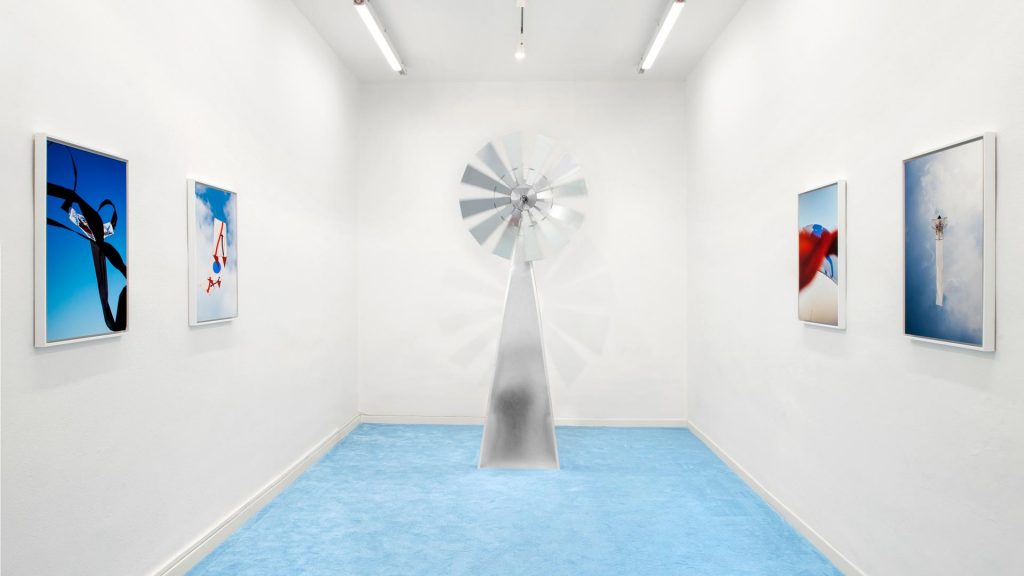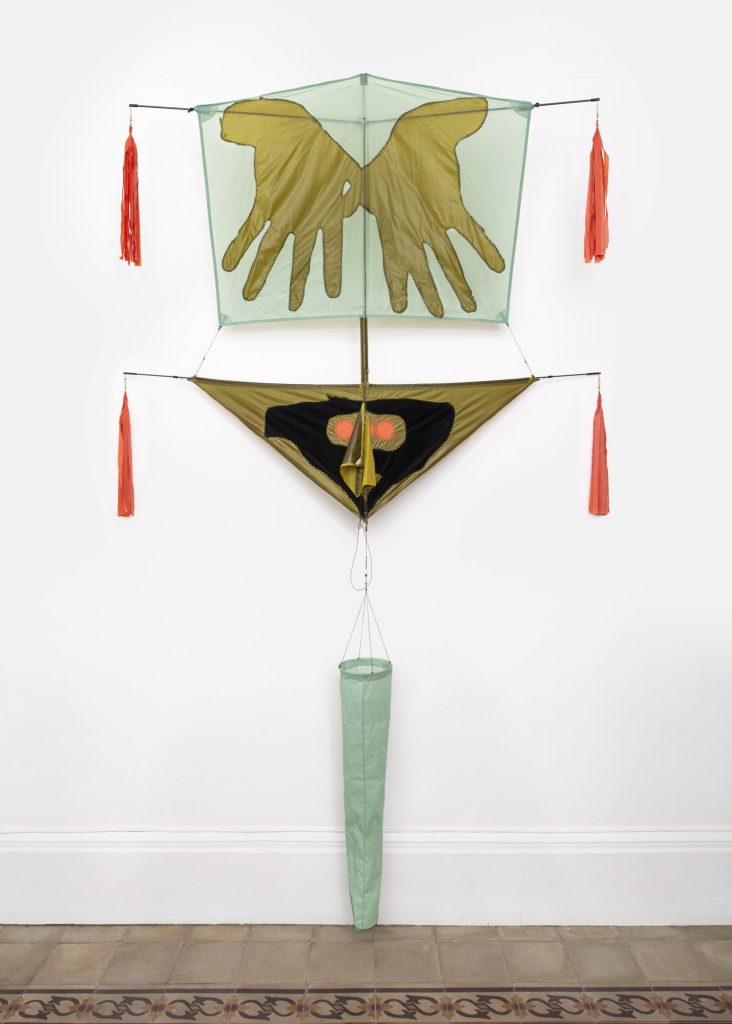
Press Release
Oliviero’s work is one that looks for the relationship between the artwork and its own context, with some kind of lightness. To be exact, it’s the strenuous and “naïve” attempt to think a glance and the artwork as a “racking of spirits”, and transform the environment from a sensible to a humoral one. Hence, a yank of wind ends up being a specific temperament, the storm waves around the marks outline a new island in which you are allowed to drown, the shovels animated by the breeze move pictures like the fire displaces a shadow. In other words, it’s trying to come up with ever-changing landscapes. Even where there are none. It’s here that you can find the charm for “Otto Cieli” – rather than for one : because every kite makes a space, from the chant of its flight. It looks for him into movements and breezes, into air pockets and sudden changes of pressure, at every snap of thread, it invents a new space.
It will be clear, watching the works, the animosity, the game that insists from the very beginning – with marks, boats, wind blades and now kites – in finding a certain sympathy with the surroundings. To try to glide across water or draw with the sky. Attempts that can only allow the intentionality to go adrift before finding reasons, that shred oneself scattering an action to share it with wind or sea, leaving the expression to be fulfilled elsewhere. Here there’s the idea of a subject which likes breaking, fragment and find itself in other places. After all, the same memories that recur into Oliviero’s painted figures are shreds of a child, flash-images that come and go, without knowing their reliability. It’s the childhood of a toy, of a cowboy, of a tiger that blends in the memory’s broth, that mixes with what has been seen or just believed to be seen. In short, even the memory is invented : a dream that afflicts and is disposed in a landscape; so, the gameplay is making it welcomed, tracking and writing its own domains into its own landscapes.
We were talking about “humoral landscapes”, about the search for a correspondence between what is seen and what is said or done. Nothing tidy, let’s be clear: more like recommended. Furthermore, it is well known that language and trait are a branch of kinship’s long clusters, that, since immemorial time, travel a specie’s whole time through a word or a drawing. And even when, cluster after cluster, these “sensations of elsewhere”, of bewilderment and orientation, get lost and fade in the same broth of history, becoming habits and automatisms, even in that situation standing up and following the footsteps of Michaux’s child is needed, a child that “at eight years old has the age of humanity, at least two hundred and fifty thousand years old”.
An imagination’s drill, between language and sign, that is not projective but imaginative. Making up landscape after landscape, finding and saying Horse, Flower, Fire, Game, Fight, Hands, Fear and Wind in the speckled monochrome of white and turquoise, because these figures and these words are the first bond between the self and the sky, the first statement to know each other. A feeling attached to a wire that precedes and frames an expression, enough for the kite’s flight not to be meaningful itself, but what the flight, the rise, the glide and the fall convey.
That’s why what they call the “act of creation” is always new. It’s the attempt to catch something expressible where there was none, but also to come up with something visible where there’s opacity, to pluck, just a little, the inexpressible and the invisible.
So that “writing a landscape” becomes writing a biography that has never had a sole subject, that is never “entirely itself”, but it is always open. Frayed, uncoiled and delivered. Oliviero’s work aims at this: at opening a lot, allowing to be carried away by a glimpse or by a thread, until some figure arises from the background. Until a turquoise dish has enough mottling to become habitable. In short, looking for an orientation that has not a “map” except for the sensitivity that pushes them, or the road and the guided paths from “what it calls”.
-Text by Piergiorgio Caserini
Location
-
Via Trieste 39, 25121 Brescia Brescia, Italy


Add a review